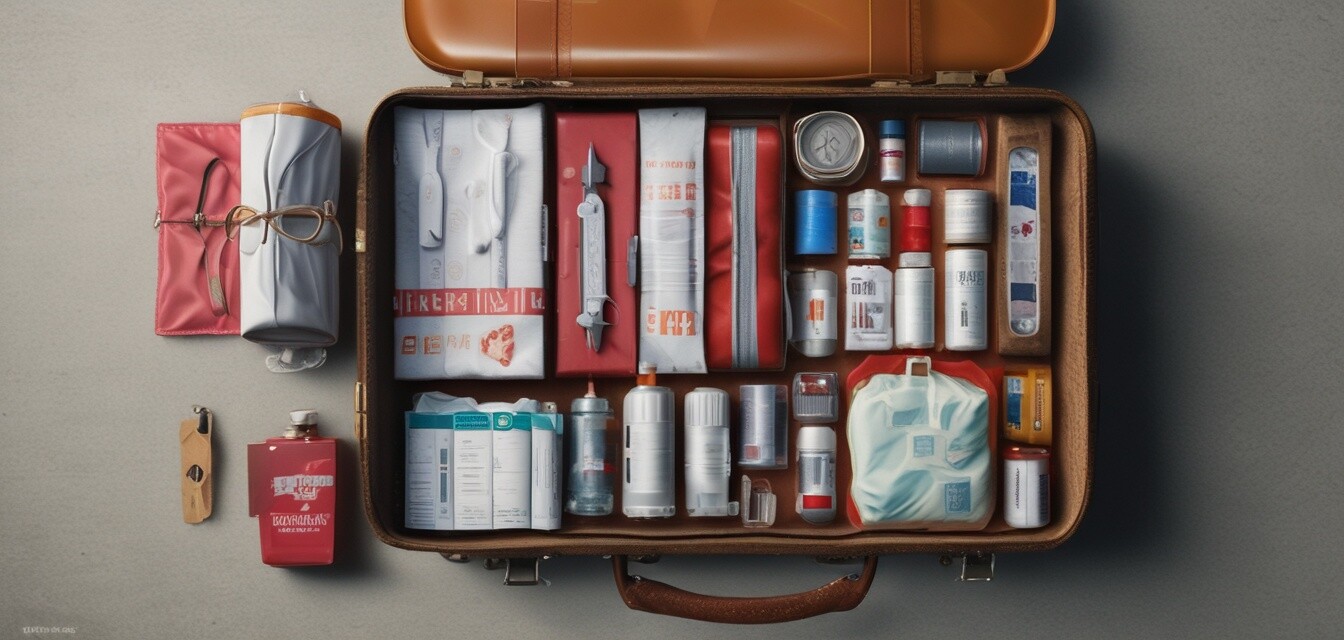
Preparing for Unexpected Travel Emergencies
Key Takeaways
- Always pack a well-stocked travel emergency kit.
- Maintain digital backups of essential documents.
- Invest in durable and versatile luggage.
- Plan for delays and unexpected situations.
- Stay informed about your travel destinations.
Unexpected travel emergencies can occur anytime, anywhere. Whether it's a minor inconvenience like a delayed flight or a significant issue like lost luggage, being prepared can save you time, money, and stress. In this article, we will cover essential tips to help you pack efficiently and prepare for unforeseen challenges on your travels.
Why Preparation Is Key
Traveling, while exciting, can often come with its fair share of surprises. Proper preparation helps mitigate the risks associated with unexpected travel emergencies. Here are a few reasons why taking the time to prepare is crucial:
- Reduces stress during emergencies.
- Ensures you have essential items on hand.
- Allows for quick responses to unforeseen circumstances.
Essential Emergency Items to Carry
Packing the right items can make a significant difference in handling travel emergencies. Here’s a table of must-have items to include in your luggage:
| Emergency Item | Purpose |
|---|---|
| First Aid Kit | For minor injuries and health issues. |
| Portable Charger | Keep your devices charged in case of delays. |
| Snacks | For unexpected hunger, especially during delays. |
| Travel Insurance Information | Access to your policy details can be critical. |
| Emergency Contact List | Include important numbers for quick access. |
| Water Bottle | Stay hydrated, especially during travel delays. |
Creating a Travel Emergency Kit
A well-stocked travel emergency kit can be a lifesaver. Here’s how to assemble one:
- Choose a durable bag: Select a compact yet sturdy bag that fits in your luggage.
- Fill it with essential items: Include items such as band-aids, antiseptic wipes, pain relievers, and any personal medications.
- Update your kit regularly: Check your kit periodically to replace expired items.
- Consider additional items: Include items like a flashlight, whistle, and multi-tool for emergencies.
Backing Up Your Important Documents
In the event of lost luggage or stolen items, having backup documents is invaluable. Here are some basic tips:
- Make copies of important documents such as your passport, driver’s license, and travel insurance.
- Store digital backups in a secure location, such as a cloud service or encrypted USB drive.
- Email yourself a copy of your travel itinerary and important contracts.
Choosing the Right Luggage
Having the right luggage can greatly ease your travel experience. Consider the following when selecting luggage:
Pros of Choosing Quality Luggage
- Durability for various travel conditions.
- Lightweight for easier handling.
- Stylish designs that make a statement.
Cons of Poor-Quality Luggage
- Increased risk of damage.
- Poor functionality with limited compartments.
- Overall frustration during travel.
Planning for Delays
Delayed flights and missed connections are more common than you think. Here’s how to prepare:
- Arrive at the airport early: Give yourself plenty of time to check in and pass security.
- Monitor flight status: Use airline apps to stay updated on any changes.
- Have a backup plan: Know your options for rebooking flights or alternative travel arrangements.
Staying Informed About Your Destination
Each travel destination has its own set of regulations, risks, and challenges. Make sure to:
- Research local customs and emergency contacts before your trip.
- Check for travel advisories issued by your government.
- Familiarize yourself with the local health and safety regulations.
Conclusion
Being prepared for unexpected travel emergencies is essential for a stress-free experience. From packing an emergency kit to staying informed about your travel destination, these tips equip you to handle any situation that arises. Remember, preparation is the first step toward a successful journey!
Beginner's Tips for Travel Emergencies
- Practice packing your emergency kit ahead of time.
- Ask experienced travelers for their tips.
- Logistical issues happen—stay calm and adaptable!
For more travel tips and advice, explore our Travel Tips category to enhance your preparation skills and make the most of your journeys.
If you’re interested in durable luggage options to keep your gear safe during any trip, check out our Carry-On Luggage section.